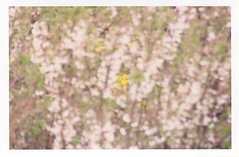In John Barker’s Bunny Chow, three South African comedians set out on a road trip to perform at Oppikoppi, South Africa’s bigger, badder, better version of Coachella. David Kibuuka, Kagiso Lediga, and Joey Rasdien all play versions of themselves, riffing off one another with a locker-room rancor honed on years of friendship. Kagiso is the funniest of the trio, a laid-back ladies man with a beautiful girlfriend despite his womanizing ways. Joey plays the Arsenio to Kagio’s Eddie, chiming in with sweet follow-up jabs when not stressing over his wayward devotion to his Muslim heritage. David plays the straight man to both, an aspiring comedian cum dishwasher with a heart of gold and the instincts of a tire iron. Slight on narrative but long on verve, the film represents the best of DIY filmmaking and homegrown cinema with its fuck-it-all video cinematography and frank depictions of sex, comedy and rock and roll. Moving from fidelity to interracial dating and the politics of post-Apartheid South Africa, Bunny Chow manages to be sincere, hilarious and engaging despite covering the seemingly superficial topic of stoners and their conquests to get laid.
To his credit, Mr. Barker never directly addresses the oddity of three black comedians performing for a snow-white crowd hundreds of miles away from the progressive city centers of his homeland. Rather than submit to the flagrant devices so readily available, he and his cohorts slip them into the corners of their scenario: As Kibuuka and his beautiful white muse screw in the back seat of his car with the rock fest booming around them, the woman asks, “Can I call you Dark David?” Kibuuka pauses everything to think this through as the haze of sex envelopes him. It’s in this moment that Bunny Chow states all it needs to in living up to it’s namesake, an allusion to a loaf of bread from which the inside is scooped out and filled with a melting pot of ingredients.












0 Comments:
Post a Comment
<< Home